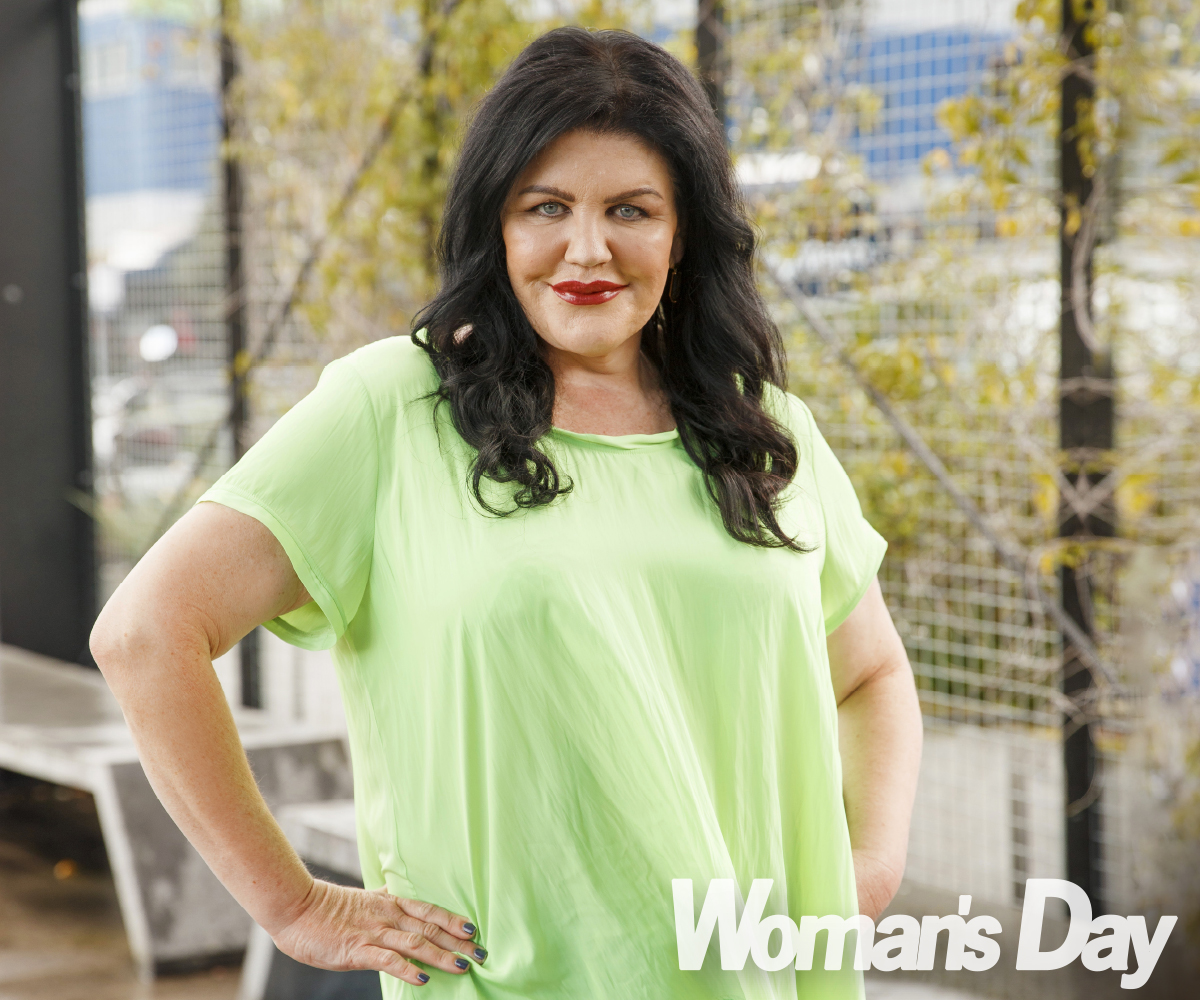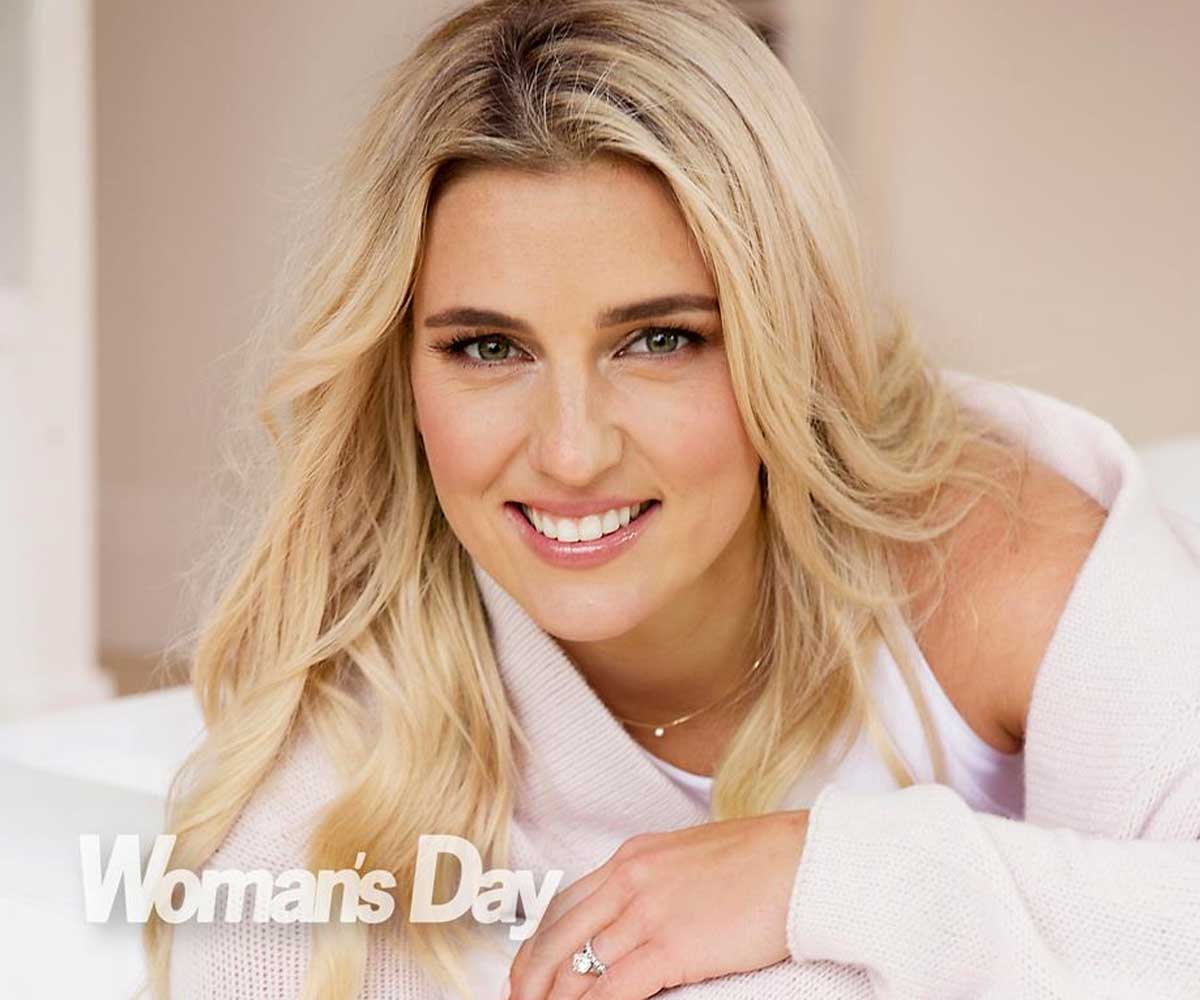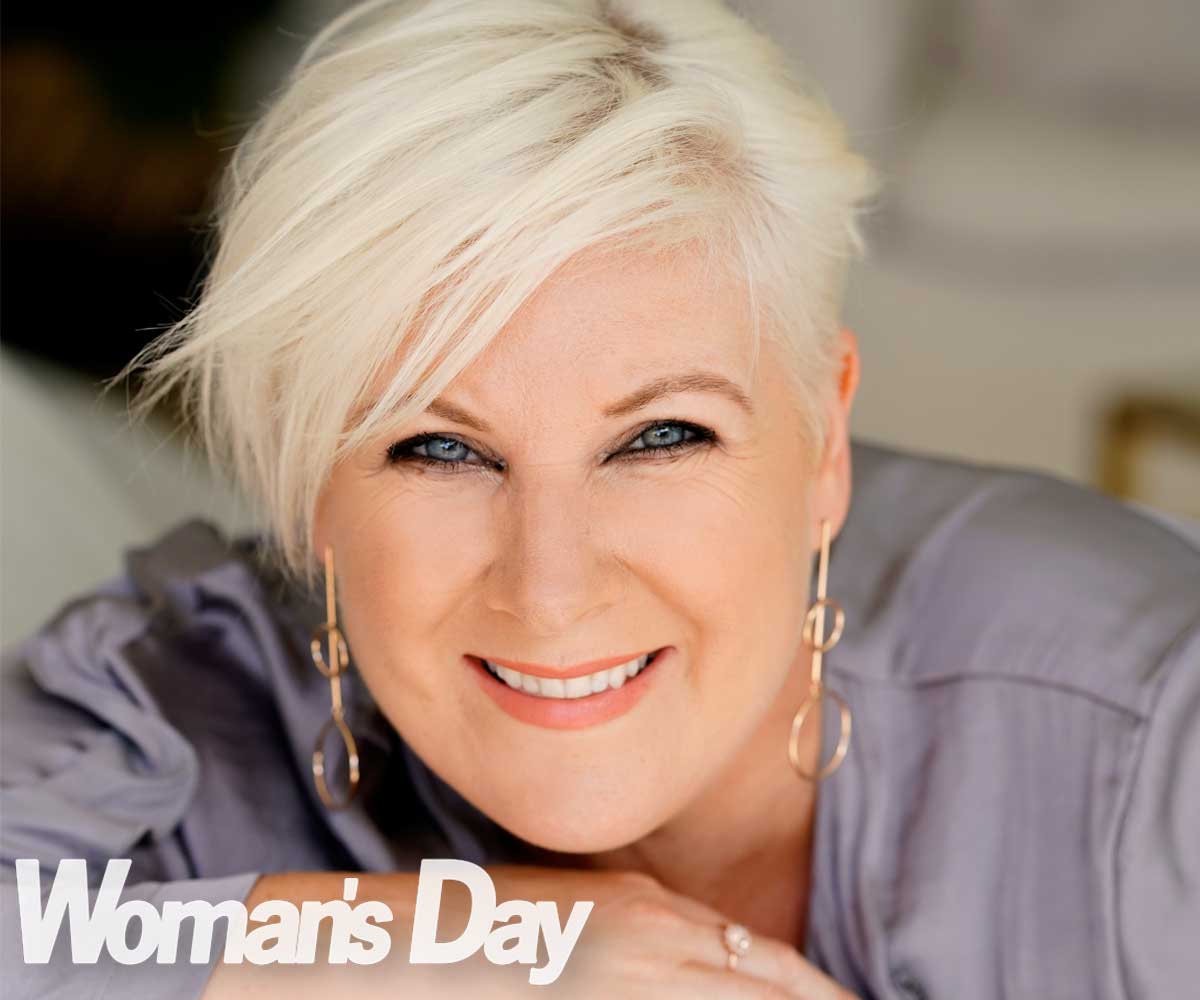For much-loved radio broadcaster and Woman’s Day columnist Polly Gillespie, it was as if someone had flicked a switch. She went from being a happy-go-lucky schoolgirl to a 13-year-old who started to fret about anything and everything.
It was so sudden, Polly initially believed the overnight change was due to something being physically wrong with her, rather than what it really was – her first encounter with depression and anxiety.
“When hormones set in, I got all kinds of very odd anxiety issues and I didn’t understand why I was so worried,” says Polly.
“My mum took me to the doctors and they said it was all in my head, which it was, but that wasn’t particularly helpful. People just thought I was being a bit dramatic.”
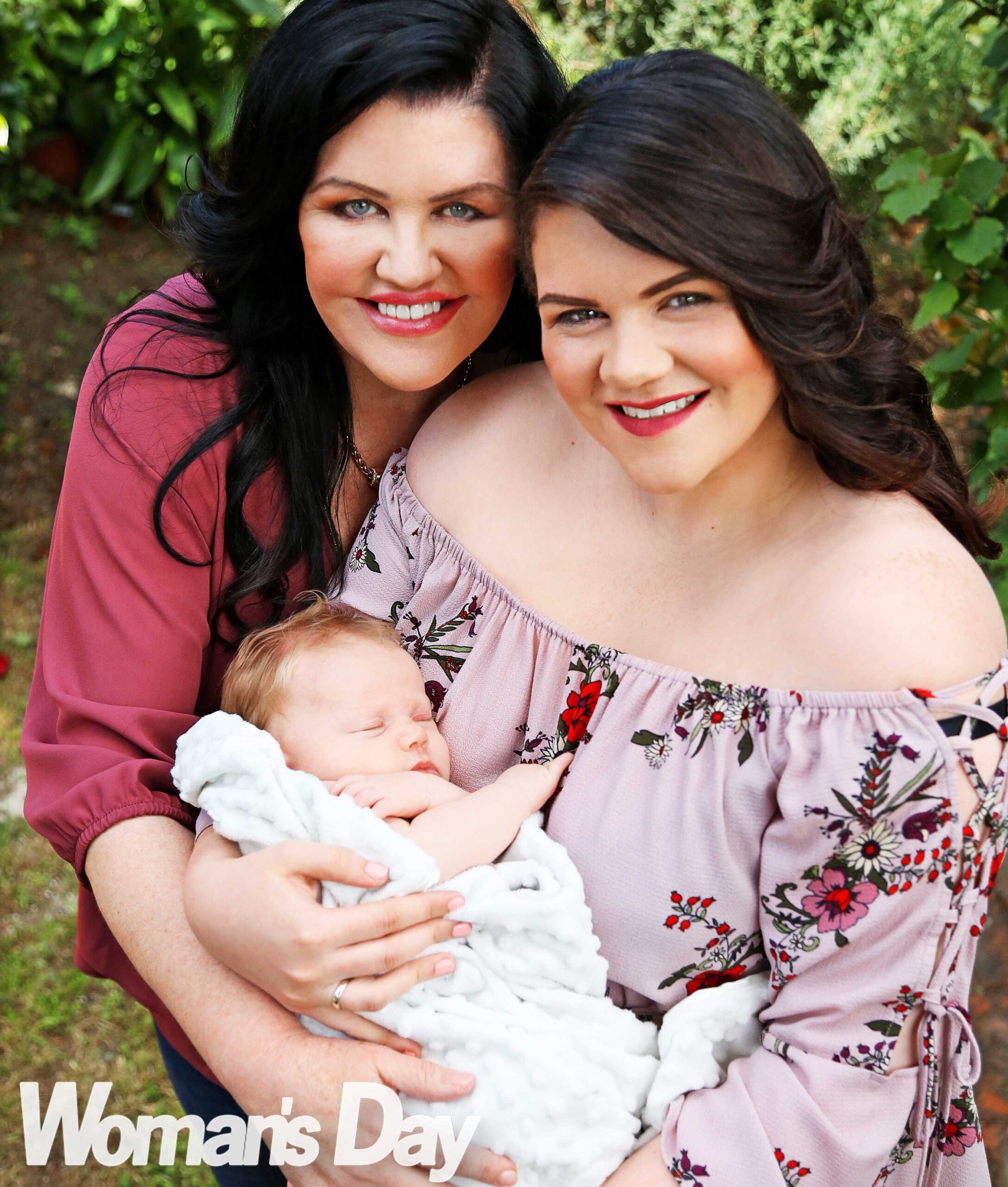
Polly with daughter Katherine and grand-daughter Roseanna.
The way New Zealanders approach mental health is undergoing a much-needed shift, but for a long time, Polly – like many Kiwis back in the day – didn’t know what she was up against. In fact, she was only diagnosed with mental health issues at 21 when she found herself in a psychiatric ward.
“For eight years, I’d have these bouts of what I now know to be depression,” she explains. “They would always go after a week. But when I moved to Gisborne for my first radio show, it didn’t go away.
“I stopped eating. I stopped sleeping. I carried on at work because that was the ethic that I was brought up with. When the going got tough, the tough go to work.
“But I was an absolute mess. I thought I had a virus. I went to Cook Hospital in Gisborne and they put me in a padded room with a mattress.”
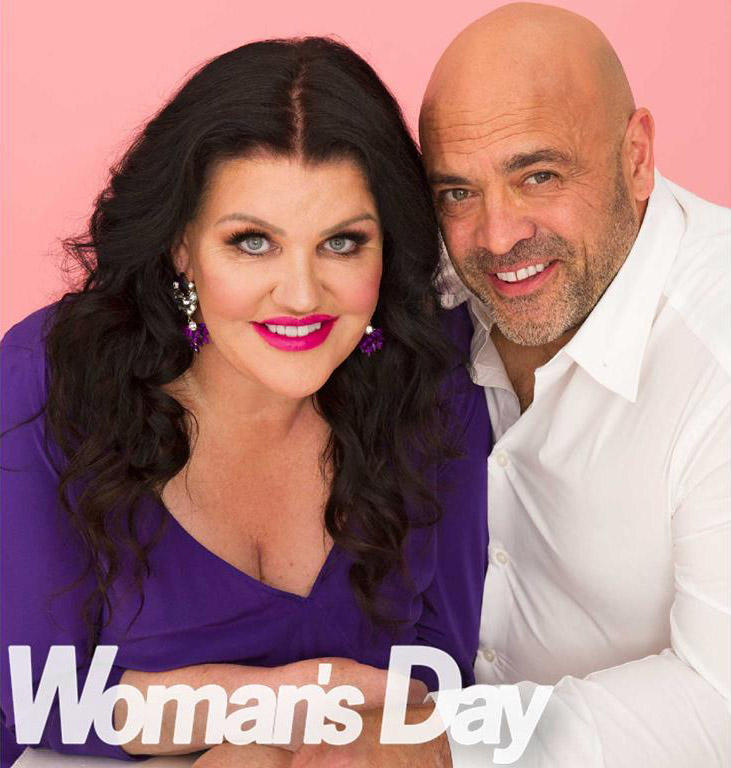
Polly and her ex-husband Grant are still on great terms – and even still work together on radio.
The More FM breakfast host was finally diagnosed with depression and anxiety, and told it was something she’d have to keep an eye on for the rest of her life. But she says the hardest part, even to this day, is the feeling of isolation that comes with mental health issues.
“Neither of my parents or my sister suffered from depression or anxiety, so when I was growing up, I felt very alone and I couldn’t explain it to anyone,” says Polly. “And even now, I find it hard to talk about as I’m a very private person.”
For Woman’s Day‘s Half It campaign, highlighting the importance of taking the time to listen to those with mental health issues, Polly admits she has found an unlikely confidant in her 25-year-old producer Dave Rybinski. And during our photo shoot, where Polly celebrates Dave as being her “much-needed ear” during her darkest days, the pair both fizz with the same mischievous energy and laughter.
She tells, “Dave is a really good guy. He’s been very supportive and willing to say, ‘If there’s anything you need to talk about, I am your producer but also your friend.’ And he’s just very easy to talk to and never judgemental.
“What a lot of people do, I find, is they offer you a solution. But sometimes you don’t need a solution. You just need someone who will be an ear and say, ‘That must be s***. Can I do anything?’ And that’s what Dave does, which is pretty unusual in a 25-year-old guy.”
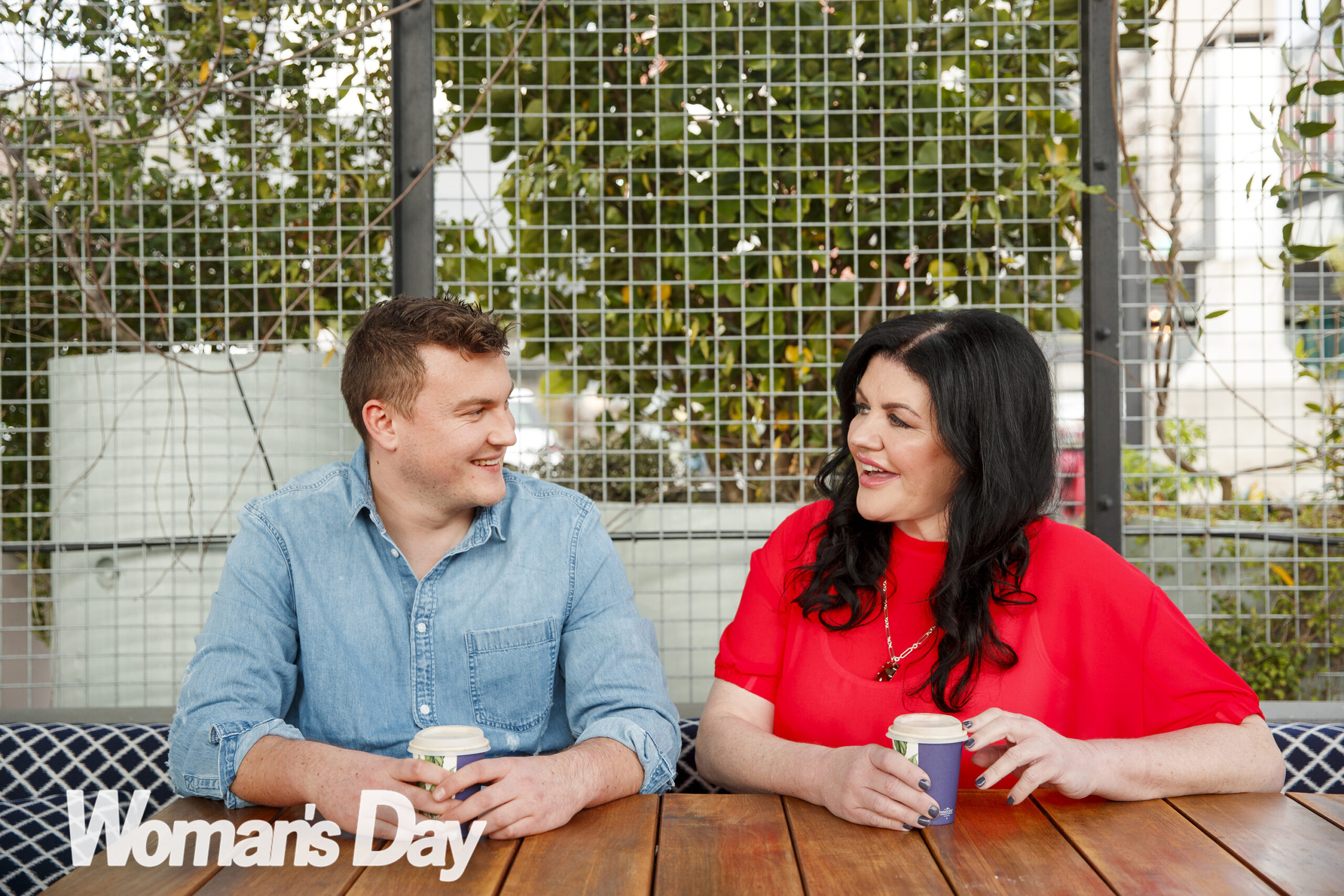
Polly has found an understanding ear in her producer Dave Rybinski.
Wellington-born Dave, who started on the show in 2014, admits that his approach to mental health comes from his school days. “There was one guy at school who was, let’s say, a little bit upset and he was going to do something bad,” he tells. “And he openly told us and from there, I always think you don’t really know what people are going through.”
Polly, who split from husband Grant Kereama in 2015, is the first to admit that not many people would have guessed she suffers from depression.
To most, she is the laugh-a-minute, bubbly radio presenter. “It proves that we can’t always tell when someone is depressed,” says Polly. “I guess when people are lying around in bed and can’t get out, they have depression that’s a lot easier to tell.
“But people are at risk if there’s really no signs. I never felt suicidal, but I did feel very unhappy and really scared. But it’s made me a better person in the end. I am much more empathetic to people. Everyone has their own battle, so it’s about being less judgemental.”
Dave adds, “And it’s about listening to that battle. It might be corny, but a problem shared really is a problem halved.”
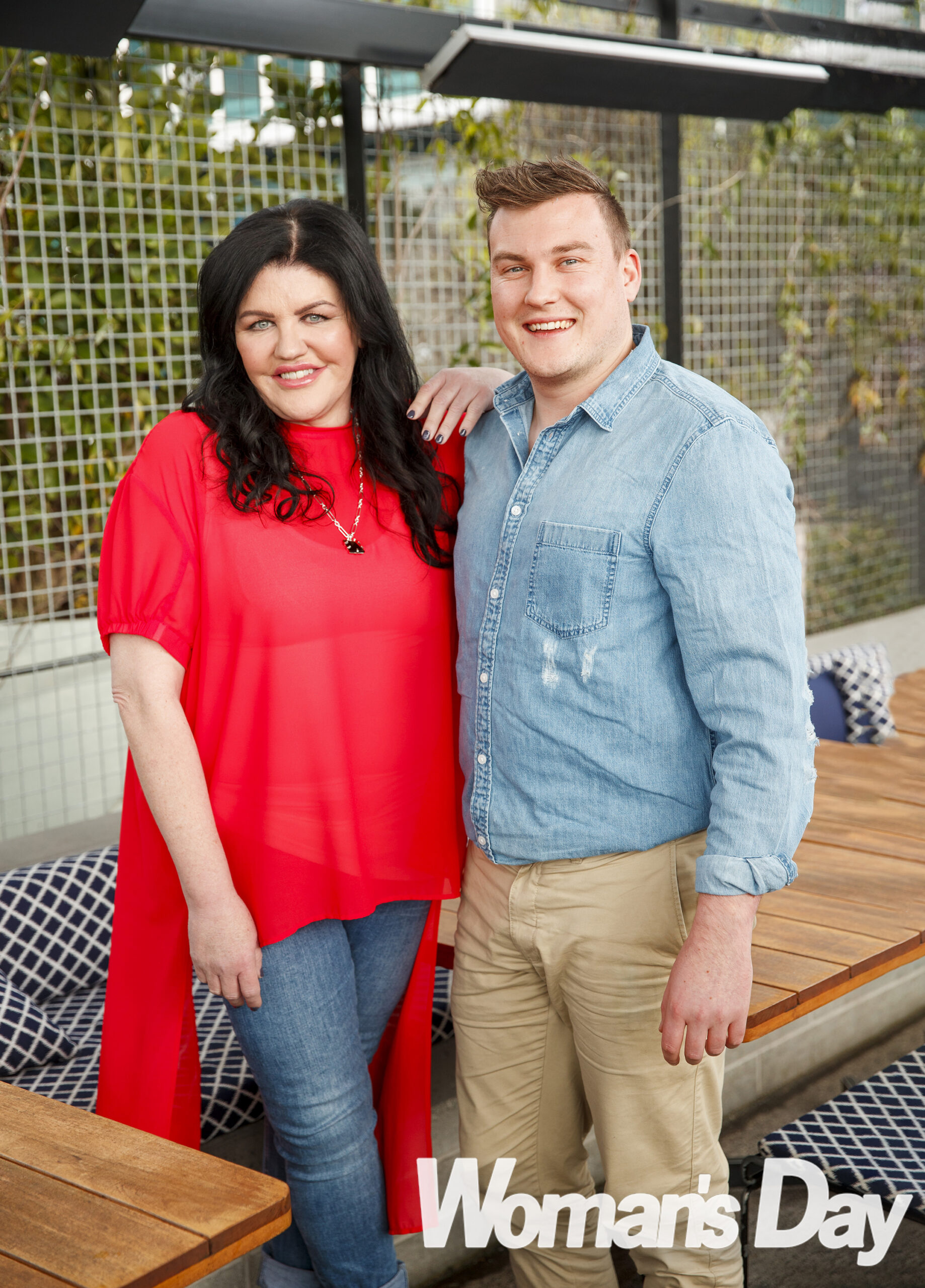
Polly says Dave just listens and is always kind.
Open the conversation
As the old saying goes, a problem shared is a problem halved. And that is also the case when it comes to mental health struggles.
Depression and anxiety can be incredibly isolating, but the Mental Health Foundation suggests a few ways to approach a conversation with a friend you’re worried about …
Ask them how they’re going by saying things like, “I’ve noticed you don’t seem like yourself – what’s going on for you?” And then really listen without judgement.
Don’t try to jump in with advice or solutions. You don’t need to “fix” them. Just be there.
Ask them what kind of help they need. They might want practical support or they might just want you to listen.
Always ask if they think they would like professional help and offer to support them to get it.
Don’t get defensive if they’re not ready to korero. Let them know you’re there when they’re ready and suggest others who they may like to talk to
Know when to get help
Mental health problems come in all shapes and sizes – one diagnosis doesn’t fit all. But there is one constant “I just don’t feel like myself”.
If you don’t feel like yourself, you are not alone. There are currently 640,000 Kiwis who have been diagnosed by a doctor as suffering from depression.
Need someone to talk to?
Lifeline is open 24 hours a day: 0800 543 354
Suicide Crisis Helpline: 0508 828 865
Healthline: 0800 611 116
Samaritans: 0800 726 666
